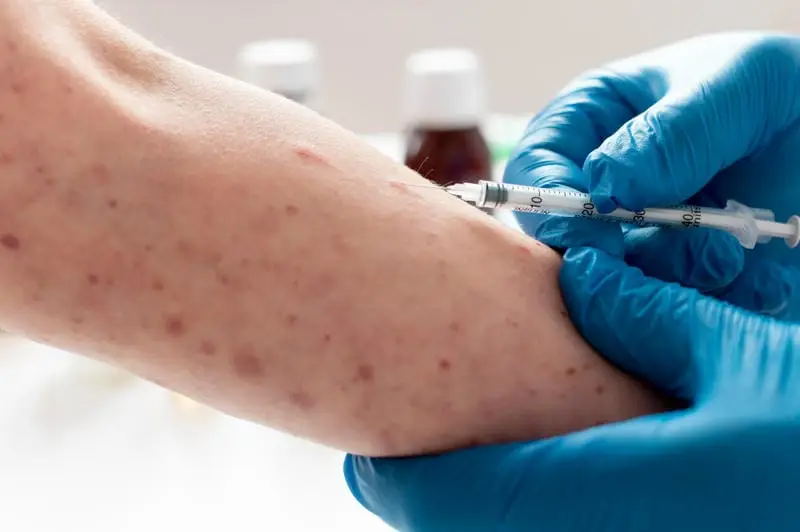- Published on: Jul 31, 2025
- 2 minute read
- By: Secondmedic Expert
Can Fatty Liver Be Reversed Completely?
Fatty liver disease is one of the most common health concerns today, affecting both young and older adults. The good news? Fatty liver can be reversed completely—especially if caught early and treated with care.
In this blog, let’s explore what fatty liver means, its causes, symptoms, and—most importantly—how to reverse it naturally.
What Is Fatty Liver?
Fatty liver occurs when too much fat builds up in your liver cells. There are two main types:
-
NAFLD (Non-Alcoholic Fatty Liver Disease): Common in people who are overweight or diabetic.
-
AFLD (Alcoholic Fatty Liver Disease): Caused by heavy alcohol consumption.
When left untreated, both types can lead to inflammation, scarring (fibrosis), cirrhosis, and even liver failure.
Symptoms of Fatty Liver
In most cases, fatty liver is silent. People may not show any symptoms until it becomes severe. When symptoms do appear, they may include:
-
Tiredness or fatigue
-
Discomfort in the upper right side of the abdomen
-
Unexplained weight gain
-
Elevated liver enzymes (found in blood tests)
Can It Be Reversed?
Yes. In the early stages, fatty liver is completely reversible—especially if the liver hasn’t been scarred yet.
The main goal is to reduce fat buildup in the liver and prevent inflammation. And this doesn’t usually need medicine—it just needs you to make healthy changes.
How to Reverse Fatty Liver Naturally
1. Adopt a Liver-Friendly Diet
Cut out:
-
Sugar (especially in juices, soda, and desserts)
-
Refined carbs like white rice, white bread
-
Fried and oily foods
-
Processed snacks
Add:
-
Green leafy vegetables (spinach, kale)
-
Fruits like berries, apples
-
Fatty fish (rich in omega-3) like salmon
-
Olive oil and nuts
-
Whole grains and legumes
2. Lose Excess Weight
Weight loss of even 5%–10% of your current body weight can drastically improve liver health and reduce liver fat.
3. Exercise Regularly
Aim for at least 30 minutes of brisk walking, swimming, or cycling 5 days a week. Strength training also helps improve metabolism and insulin sensitivity.
4. Control Blood Sugar & Cholesterol
Fatty liver often exists alongside diabetes and high cholesterol. Keep your sugar and cholesterol levels in check with proper diet and medications (if prescribed).
5. Quit Alcohol (if applicable)
Even small amounts of alcohol can worsen fatty liver. If you're dealing with NAFLD or AFLD, quitting alcohol is critical.
6. Avoid Unnecessary Medications
Certain over-the-counter painkillers (like paracetamol) or herbal supplements may stress your liver. Take them only if prescribed by your doctor.
What Tests Help Track Progress?
After starting your lifestyle changes, your doctor may recommend:
-
Liver Function Tests (LFT)
-
Ultrasound or FibroScan
-
Lipid Profile
-
HbA1c (for sugar control)
-
Vitamin D or B12 if fatigue is an issue
You can book these through trusted platforms like SecondMedic.com, with home collection via Thyrocare labs.
When to See a Doctor
You should consult a doctor if:
-
You’re overweight or diabetic
-
You feel tired most days
-
You have elevated liver enzymes
-
You drink alcohol regularly
-
You’ve had abnormal ultrasound reports
Early detection is the key. It’s easier to reverse fatty liver than to treat cirrhosis.
Conclusion
Fatty liver might sound scary—but in many cases, it’s completely reversible. The trick is to act early, stay consistent with healthy habits, and monitor your progress through tests.
So, can fatty liver be reversed completely? Yes, it can—with the right lifestyle, dedication, and awareness.
Read FAQs
A. Yes, if detected early and treated with consistent lifestyle changes, fatty liver can be reversed.
A. It can take 3 to 6 months of dedicated changes in diet and activity to see significant improvement.
A. Yes. It can progress to liver fibrosis, cirrhosis, and even liver failure if ignored.
A. Leafy greens, berries, fatty fish, nuts, olive oil, and fiber-rich whole grains support liver health.
A. Absolutely. Liver Function Tests (LFT), lipid profile, ultrasound, and fibroscan help track improvement.









